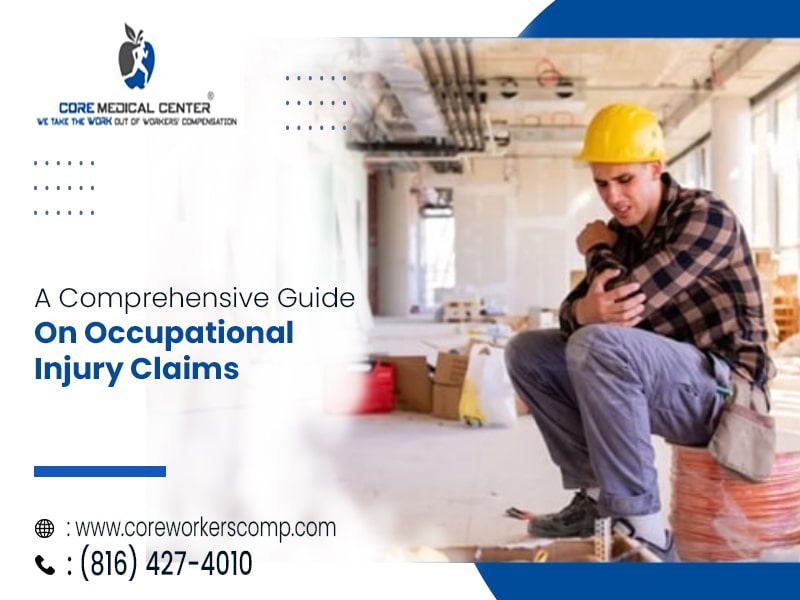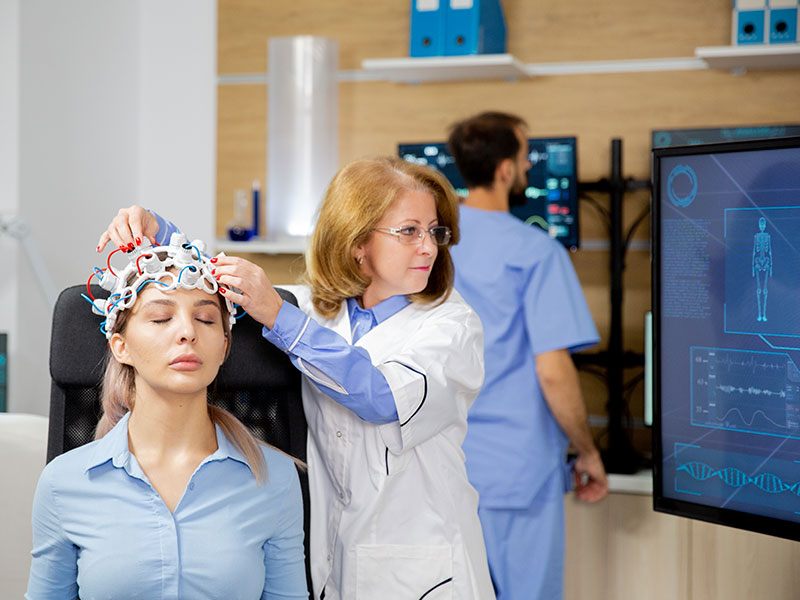Even in the safest environments, injuries can still occur. You may go about your daily work for one minute and then suddenly experience severe discomfort and uncertainty. If you’ve been hurt at work, you probably have many questions. Navigating the occupational injury procedure may be challenging. Knowing how to file an Occupational Injury Claims in the event of an occupational accident is essential. This thorough guide will help you to understand this process clearly.
Before diving into the detailed discussion, if you need any help with Occupational Injury Claims, reach out to Core Medical Center, USA, today. Core Medical Center is a prominent medical center specializing in worker’s compensation and occupational injuries. From diagnosis to developing a tailored treatment plan, treatments, and therapies, and all the paperwork and processing associated with Occupational Injury Claims, we are there for the injured worker and the employer at every stage of recovery. Employers can contact us for the best help with Occupational Hazard Insurance.
Now let’s dive into the detailed discussion:-
- Recognizing an Occupational Injury
- Seeking Immediate Medical Attention
- Reporting the Injury to Your Employer
- Understanding Workers’ Compensation
- Gathering Evidence and Documentation
- Initiating the Claims Process
- Medical Evaluation and Treatment
- Receiving Benefits and Compensation
- Returning to Work and Rehabilitation
- Appealing Denied Claims
Recognizing an Occupational Injury:
The phrase “occupational injuries” refers to various situations, including short-term health issues brought on by exposures at work and long-term physical injuries from slips and falls or repetitive stress injuries. It is crucial to know about work-related injury.
Seeking Immediate Medical Attention:
After sustaining an occupational injury, the first and foremost concern is seeking prompt medical attention. Not only does this ensure your well-being, but it also creates a vital medical record of the incident.
Reporting the Injury to Your Employer:
Timely reporting of the injury to your employer is crucial. Most states have specific timeframes within which injuries must be reported to be eligible for compensation.
Understanding Workers’ Compensation:
The workers ‘ compensation system compensates employees who sustain diseases or injuries. It pays for rehabilitation expenditures, missed earnings, and medical expenses.
Gathering Evidence and Documentation:
When making a claim, it might help to keep track of the occurrence and gather proof such as photos, witness accounts, and medical records.
Initiating the Claims Process:
Occupational Injury Claims involve filling out the necessary forms your employer or insurance company provides. Be sure to include all relevant information about the injury, treatment received, and any witnesses to the incident.
Medical Evaluation and Treatment:
You could be forced to get a medical evaluation after making a claim. This examination determines your injuries’ severity and the recommended course of treatment.
Receiving Benefits and Compensation:
If your claim is accepted, rewards will start to flow. These could cover a percentage of your lost salary, rehabilitation expenditures, and reimbursement for medical bills.
Returning to Work and Rehabilitation:
You might need to go through rehabilitation to speed up your recovery and enable a return to work, depending on the severity of your injury. It may entail vocational training, Occupational Health Services, or physical therapy.
Appealing Denied Claims:
You have the option to appeal if your Occupational Injury Claims are rejected. You must provide more justifications or explanations for your position during this procedure.
Conclusion
It can be difficult to navigate Occupational Injury Claims, but with the correct information and tools, you can get the help and reimbursement you want for a complete recovery. Remember that the critical components of a successful claim are rapid medical care, early reporting of the occurrence, and proper documentation. Do not be afraid to seek legal counsel if you encounter difficulties safeguarding your rights and securing a just outcome. If you need a tailored treatment plan, treatments, or all the paperwork and processing associated with these claims, contact Core Medical Center, USA, today.





Recent Comments